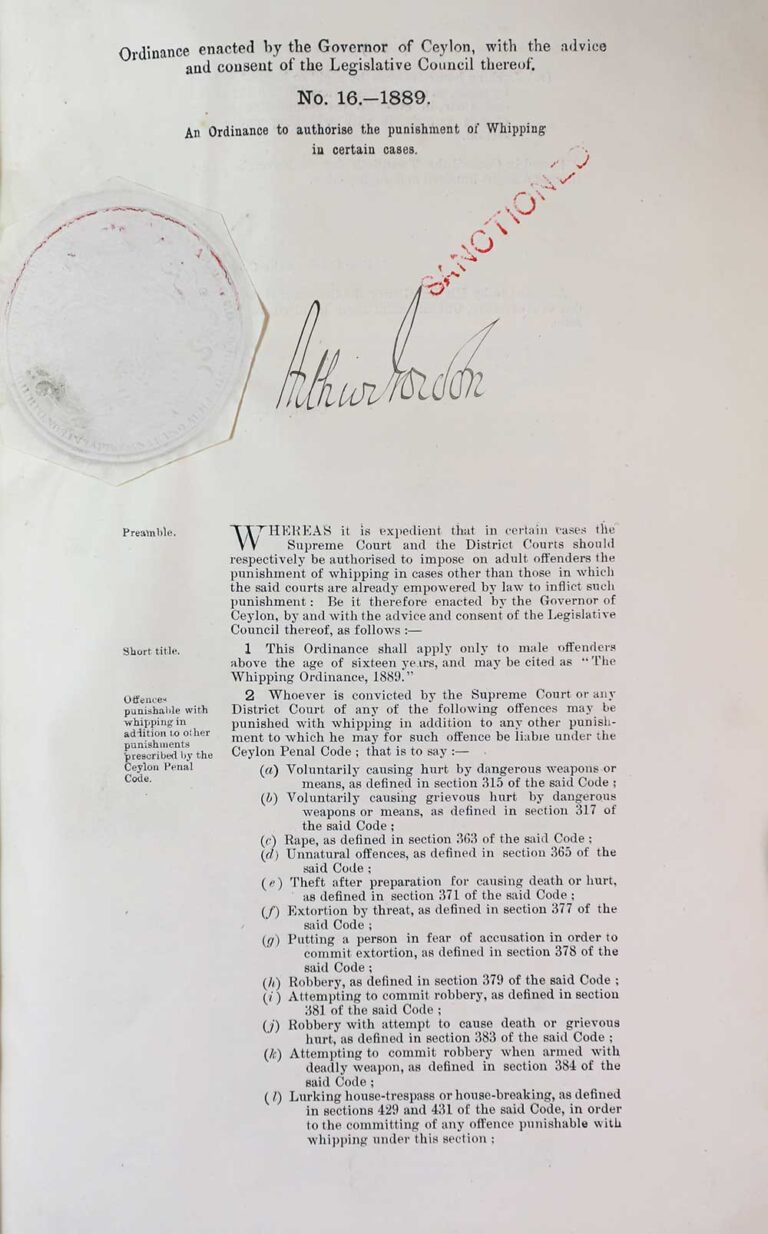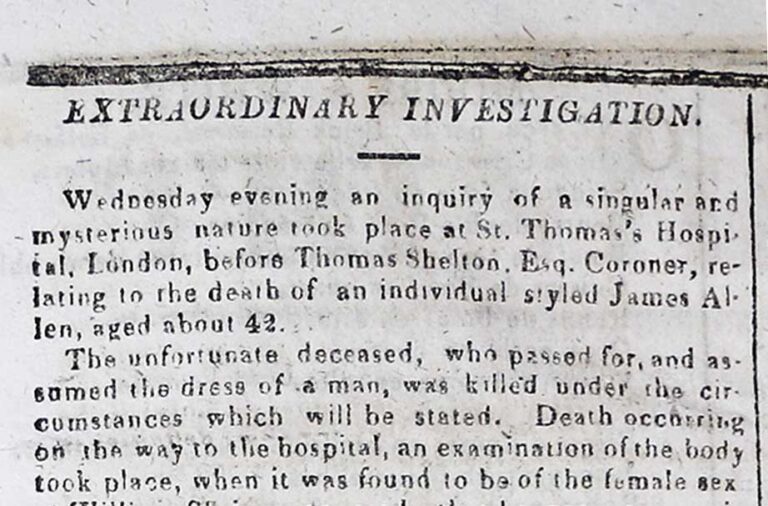Examining the history of LGTBQ+ lives in Britain is not complete without extending this examination to LGBTQ+ lives in the British Empire. Laws and social attitudes towards LGBTQ+ people in these countries were set by British colonial governments. For example, Section 377 of the Indian Penal Code criminalised same-sex acts in 1860, spreading to the rest of the British Empire and even to Britain itself. Today, many former British colonies still maintain these laws.
The National Archives has many records on both LGBTQ+ and colonial history; however, the intersections between these topics have been historically underexplored. Many of these records have broad catalogue descriptions and need to be accessed by indexes. We know little about how our collections might reflect the impact of Section 377 and subsequent legislation around the British Empire, or how and where our collections might document the experience of LGBTQ+ lives around the world at that time.
Tracing the history of LGBTQ+ lives in the British colonies in our collections remains a challenge, and the work documented in this blog post reflects an initial foray with hope for many more to come. In a placement at The National Archives, PhD student Garfield Campbell took on the challenge of scoping LGBTQ+ lives in colonial records. Here, he reflects on his findings and the challenges and opportunities his scoping revealed. Garfield is doing his PhD, Exploring Anglican Missiology in 19th-Century Jamaica at the University of Leeds.
Content note: This post quotes from records that reflect the colonial and legal context in which they were created, including homophobic and transphobic attitudes. Original language is preserved here to accurately represent our records and to help us fully understand the past.
LGBTQ+ references in the records
After several fascinating weeks at The National Archives exploring ten series and 83 volumes of documents (each volume contains hundreds of correspondences) from six colonies of the Colonial Office records, I encountered only four references relating to LGBTQ+ histories. Below are two examples:
The colony of Ceylon (modern day Sri Lanka) in 1884 passed legislation which contained a section titled: ‘Of Unnatural Offences’, which expressly criminalised sexual intercourse between men with a penalty of ‘imprisonment which may extend for ten years, and shall be liable to fine.’ In 1889, the Colony enacted an amendment to the penal code, adding whipping to the penalty for intercourse between men.


On 6 March, 1829, the Trinidad Guardian newspaper reported a story titled ‘Extraordinary Investigation’. The story was about a person killed by accident on a construction site in London, and a coroner’s inquest revealed that the person’s presenting gender (male) did not correspond with the gender associated with their genitalia. The story further reported that they were married to a woman for 21 years. A follow-up to this story was reported in the March 10, 1829, issue, titled ‘The Female Husband’, with sensational details about the deceased’s life and marriage.

Both the Coroner and Jury expressed their astonishment at so extraordinary a circumstance as two females living together as man and wife for a period of twenty one years; it certainly was both unprecedented and mysterious.
[…] The witness said she had seen the certificate of the marriage; the ceremony took place at Camberwell church about twenty years ago.
The Jury expressed a wish to have the female who lived with the deceased before them; but the Coroner said that it was unnecessary; they only had to inquire how the deceased (immaterial, male or female) came to her death. After some further discussion, a verdict of “Accidental Death” was returned.
Trinidad Guardian, 6 March 1829
Archival Approach
It is easy to overlook or dismiss the references above as vague and tangential to LGBTQ+ issues while exploring the records. Our present language, debate and identity politics around LGBTQ+ matters can blinker our view when looking at the subject in historical contexts. As Jen Manion writes, ‘our contemporary beliefs that gender and sexuality are identities that people articulate has dramatically skewed our view of the long ago past.’
Seeking to glean LGBTQ+ histories in the Colonial Office records requires observing and dwelling on what Marisa J. Fuentes calls the ‘ephemeral archival presence’, which is often found in the archives about dispossessed and oppressed peoples.
One possible way into the Colonial Office records exploring LGBTQ+ histories is by observing, following and possibly narrating the brief and seemingly tangential references to human sexuality and gender relations. This often requires raising questions about historical context and the archival silence that permeates the records. Which, like me, might leave you with more questions than answers (prompting further explorations).
The Colonial Office records are extensive and require patience and diligence in seeking to unearth material concerning what Ann Laura Stoler terms ‘minor histories’, which is a way of characterising the stories of those who might otherwise be ‘displaced’ by the voice of the powerful.
LGBTQ+ people have always been a part of society, and their histories are present, even in the Colonial Office records; however layered and perhaps deliberately hidden they might be in the historical records. A sense of where and how to look will be important in narrating those histories.
I am grateful to The National Archives for this opportunity to engage in the project. They are aware of the need to do more work to understand and engage audiences with their collections in this area and are actively looking for opportunities to do this, including updating their sexuality and gender identity research guide.
References
- Jen Manion, Female Husbands: A Trans History (Cambridge: Cambridge University Press, 2020).
- Marisa J Fuentes, Disposed Lives: Enslaved Women, Violence, and the Archive (Philadelphia: University of Pennsylvania Press, 2016).
- Ann Laura Stoler, Along the Archival Grain: Epistemic Anxieties and Colonial Common Sense (New Jersey: Princeton University, 2010)
Further reading
- Explore further how our collections speak to LGBTQ+ histories in our education resources on this topic
- For an introduction to the records of the Colonial Office, read our research guide
- Read a recent blog post on experiences of researching LGBTQ+ history
Seems there is a rich history and influence within our own backyard yet sometimes we’re blinded while searching for that which presents itself immediately in front of the entire neighborhoods backyard.
In simple slang… There’s no need to go looking for clues of LGBTQ existence since we’re living proof. It can’t be more obvious or misrepresented than it already is among all of us.